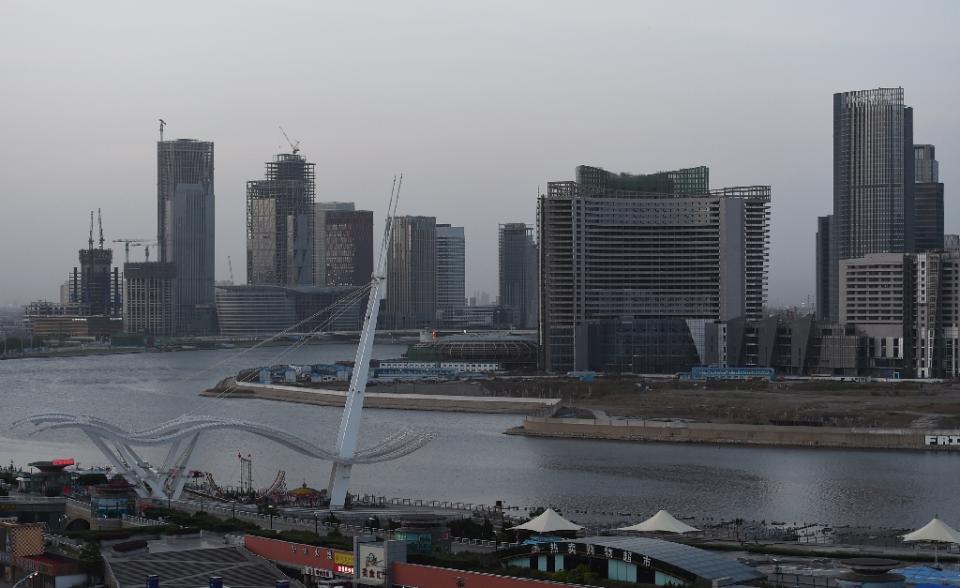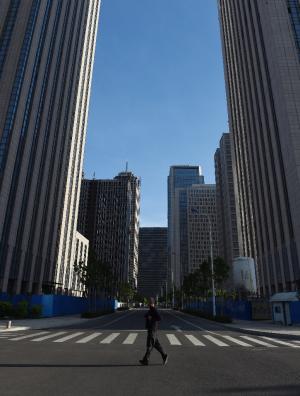
As the wind whistles through half-finished skyscrapers and over empty boulevards, a development billed as China's answer to Manhattan at times bears out the "ghost town" label some have given it.
Chinese officials hope the towers of the Yujiapu Financial District will one day house a trading centre to rival New York's Wall Street or London's Canary Wharf.
But more than three years after construction began, all but one of the buildings planned for the development in the northern Chinese port city of Tianjin appear unfinished, alongside vacant spaces where others should stand.
As China's economic growth slows after a decades-long boom, these buildings -- many of which still lack exterior walls -- some 150 kilometres from Beijing raise questions about the viability of the scheme, which state media say will cost a total of 200 billion yuan ($32 billion).
Billed as the largest hotel in Asia, the Country Garden Phoenix Hotel is an empty husk, with no builders in sight near its curved exterior.
But there are some signs of life in Yujiapu, a chunk of land peppered with more than a dozen skyscrapers in various states of construction jutting into the Hai River.
Construction workers in hard hats and loose-fitting jackets measure up glass for some buildings, and a shopping centre had a sprinkling of customers on a recent visit by AFP.
But no buildings apart from the mall appear to be finished -- a prospect likely to worry local authorities who reportedly hoped the project would open last summer.
In the "Conch Bay" development on the opposite bank, incomplete buildings have been fenced off and its wide roads see almost no pedestrians.
Several reports have labelled Yujiapu a "ghost town."
But some argue that it could in time achieve its goals, citing the development of Shanghai's bustling Pudong district -- which some dismissed as a waste of money when it was first planned in the 1990s.
The Tianjin project has a powerful backer in Zhang Gaoli, the city's former top official who was promoted to China's all-powerful Politburo Standing Committee in 2012.
Analysts say its success will depend in part on a central government plan to create a new "economic corridor" linking Tianjin with neighbouring Beijing.
"If the two cities become integrated on a policy and economic level, I think that Yujiapu is really promising," said Zhu Guozhong, of Peking University's Guanghua School of Management.
On the side of one of Yujiapu's unfinished tower blocks, a huge banner listed a phone number, seemingly inviting inquiries for office space.
When AFP called it turned out to be a real estate agency -- but the woman who answered said she had not heard of the project. LINK



